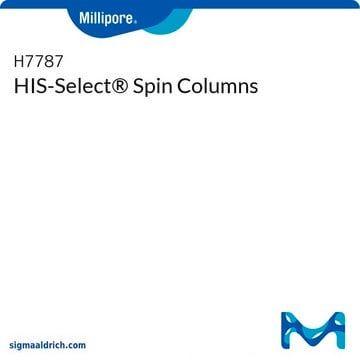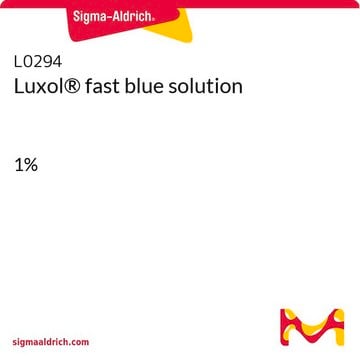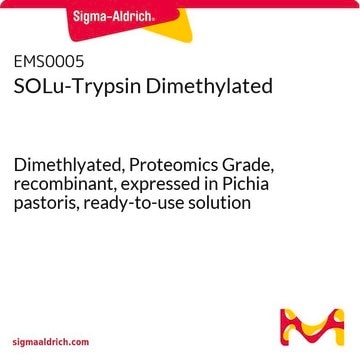TT0010
Trypsin Spin Columns
for proteomics
Synonyme(s) :
Immobilized TPCK- treated Trypsin, Immobilized Trypsin
About This Item
Produits recommandés
Qualité
for proteomics
Température de stockage
2-8°C
Vous recherchez des produits similaires ? Visite Guide de comparaison des produits
Catégories apparentées
Description générale
This ultra-micro spin column contains highly purified, TPCK-treated porcine trypsin immobilized on a spherical 20 micron silica support, chemically modified to minimize non-specific adsorption. This product is ideal for rapid protein digestion of small volumes (100 μl or less). Eluted peptides are ready for MS analysis, and require no additional clean-up.
Caractéristiques et avantages
- 15 minute digestion
- Ideal for 10 to 100 μg of protein sample
- Minimal chymotryptic activity
- No additional clean-up required
Produit(s) apparenté(s)
Mention d'avertissement
Warning
Mentions de danger
Conseils de prudence
Classification des risques
Acute Tox. 4 Oral
Code de la classe de stockage
10 - Combustible liquids
Point d'éclair (°F)
Not applicable
Point d'éclair (°C)
Not applicable
Certificats d'analyse (COA)
Recherchez un Certificats d'analyse (COA) en saisissant le numéro de lot du produit. Les numéros de lot figurent sur l'étiquette du produit après les mots "Lot" ou "Batch".
Déjà en possession de ce produit ?
Retrouvez la documentation relative aux produits que vous avez récemment achetés dans la Bibliothèque de documents.
Les clients ont également consulté
Notre équipe de scientifiques dispose d'une expérience dans tous les secteurs de la recherche, notamment en sciences de la vie, science des matériaux, synthèse chimique, chromatographie, analyse et dans de nombreux autres domaines..
Contacter notre Service technique














